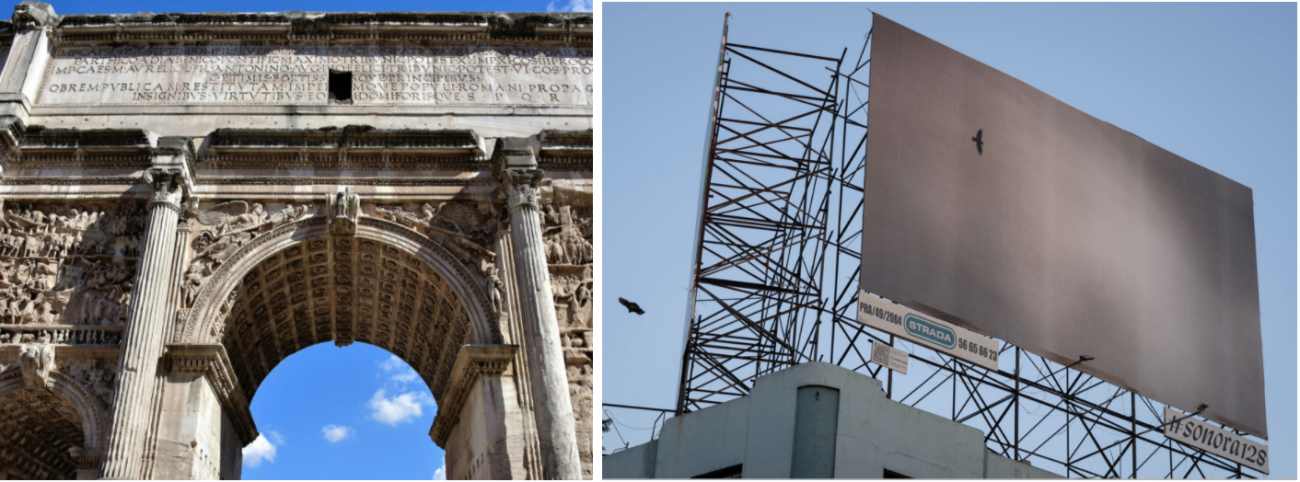
We are thrilled to announce the appointments of Gretel Rodriguez, a scholar of ancient Roman architectural monuments, and Lindsay Caplan, who specializes in 20th- and 21st-century art, technology and political thought. Both were post-doctoral research fellows who joined our department as of July 1st as Assistant Professors. On one level, professors Rodriguez and Caplan research wildly different areas. However, each will be teaching classes and investigating work that intersect with questions we are all considering today about power, commemoration and politics: how do we navigate the histories of art, and understand monuments in the wake of social upheaval and change?
Professor Rodriguez will be teaching courses on politics and spectacle and funerary culture in ancient Rome, as well as a survey course on ancient Roman art and architecture. Her research explores the topographical, visual, and narrative mechanisms that turned commemorative arches into powerful communicative devices. Her research is especially relevant to today’s exploration of monuments. She studies how patrons and citizens responded to and understood freestanding arches and monuments in the Roman Empire.
Though studying a different time period, Professor Caplan’s research also focuses on how viewers interpret and understand art. Through her research and teaching she demonstrates “how the study of modern and contemporary art can contribute productively to broader conversations about society, collective agency, and the capacity for social change,” Caplan says. “Art history is, in my view, a way to excavate alternative visions of humanity and social life. It can stage an experiential encounter with the radically different, take us outside ourselves, and defamiliarize the familiar.” She will be teaching an art history methods seminar, “Criticality,” a lecture course on Contemporary Art, and, along with Professor Sheila Bonde, the department survey, “Global Art History.” Please join us in welcoming them as members of our faculty.